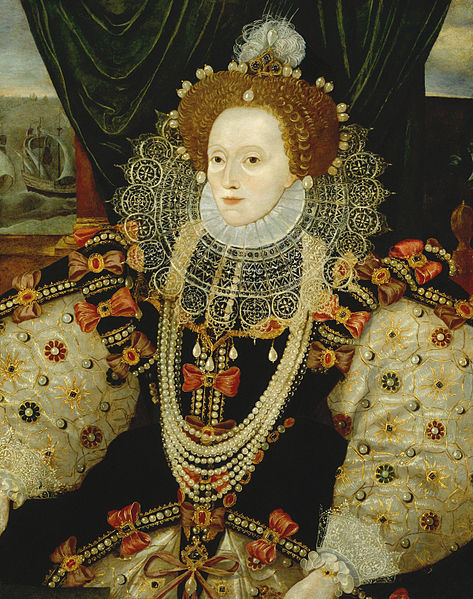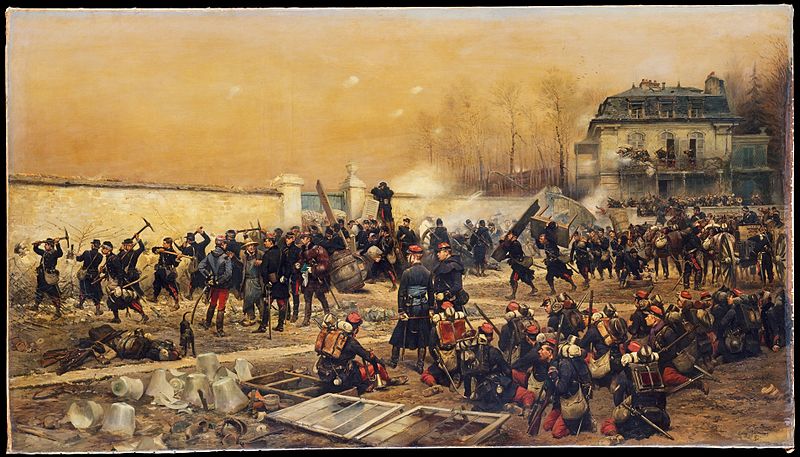This article chronologically highlights 20 pivotal historical events that occurred on February 25th, showcasing significant moments that have influenced global politics, society, culture, and technological advancements.
From ancient Rome’s political maneuvers to groundbreaking achievements in modern history like the dissolution of the Warsaw Pact and the election of trailblazing female leaders, these events mark crucial points of change and development in the human narrative.
February 25th Events in History
138 – The Roman Emperor Hadrian adopts Antoninus Pius, effectively naming him as his successor
Emperor Hadrian, known for the Hadrian’s Wall in Britain and his extensive building programs throughout the Roman Empire, adopted Antoninus Pius as his successor on the condition that Antoninus would adopt Marcus Aurelius and Lucius Verus as his successors.
Also Read: February 24 – On this Day in History
This adoption was part of Hadrian’s efforts to ensure a stable and peaceful succession, which was a significant concern in Roman imperial politics. Antoninus Pius would go on to rule wisely and justly, earning the respect of his people and the Senate.
1570 – Pope Pius V excommunicates Queen Elizabeth I of England with the papal bull Regnans in Excelsis
This marked a pivotal moment in the complex religious and political conflicts of the time. Elizabeth I’s Protestant faith and her refusal to recognize the authority of the Pope led to her excommunication.
Also Read: February 26th Events in History
The papal bull declared her a heretic and released all her subjects from any allegiance to her. This deepened the divide between Catholicism and Protestantism in England and made Elizabeth’s rule even more challenging, as it encouraged Catholic plots against her.

1601 – Robert Devereux, 2nd Earl of Essex, is executed for treason against Queen Elizabeth I of England
Devereux was a favorite of Elizabeth I but fell out of favor due to various military failures and his unauthorized return from Ireland. His attempt to raise a rebellion against the queen’s government led to his downfall.
He was tried, found guilty of treason, and executed. His execution marked the end of the powerful Essex family and served as a cautionary tale about the dangers of challenging the monarch’s authority.
1836 – Samuel Colt is granted a United States patent for the Colt revolver
This event was a significant milestone in the history of firearms. Samuel Colt’s invention of the revolver, a firearm capable of firing multiple rounds without reloading, revolutionized personal and military armament.
The Colt revolver’s design made it a reliable and sought-after weapon, playing a crucial role in the westward expansion of the United States and in numerous conflicts worldwide.
1843 – Lord George Paulet occupies the Kingdom of Hawaii in the name of Great Britain in the Paulet Affair (1843)
Acting without official British government sanction, Lord George Paulet, a captain in the Royal Navy, took provisional possession of the Kingdom of Hawaii in response to disputes between British subjects and the Hawaiian government.
Paulet’s actions led to a five-month occupation during which he instituted several changes. The situation was later resolved when Admiral Richard Darton Thomas arrived and restored the Hawaiian king’s authority, rejecting Paulet’s unauthorized actions.
1870 – Hiram Rhodes Revels, a Republican from Mississippi, is sworn into the United States Senate, becoming the first African American ever to sit in Congress
This was a landmark moment in American history, occurring during the Reconstruction era following the Civil War. Revels was appointed to fill the vacant seat left by Jefferson Davis, who left to become the President of the Confederate States.
Revels’ admission to the Senate represented a significant step forward in the struggle for African American rights and integration into American political life. His presence in Congress challenged the prevailing norms of the time and paved the way for future generations of African American politicians.
1901 – J.P. Morgan incorporates the United States Steel Corporation
This event marked the formation of the world’s first billion-dollar corporation, which came to symbolize the height of American industrial power and the influence of monopolies in the early 20th century.
J.P. Morgan, a prominent financier and banker, orchestrated the merger of Andrew Carnegie’s Carnegie Steel Company with several other steel and iron businesses to form U.S. Steel.
This conglomerate played a crucial role in the development of the American economy, driving industrial growth but also leading to debates over the regulation of large corporations.

1912 – Marie-Adélaïde, the eldest daughter of Grand Duke William IV, becomes the first reigning Grand Duchess of Luxembourg
Her ascension was significant as it marked the first time a female had ruled Luxembourg in her own right. Marie-Adélaïde’s reign came at a turbulent time in European history, including World War I.
Her sympathies during the war led to controversy and her eventual abdication in 1919 in favor of her sister, Charlotte. Her reign highlighted the challenges of monarchical rule in a rapidly changing political landscape and the particular challenges faced by female sovereigns.
1921 – Tbilisi, capital of the Democratic Republic of Georgia, is occupied by Bolshevist Russia
This event marked the end of the brief independence of Georgia after the Russian Revolution and the beginning of Soviet rule in the country.
The Red Army’s occupation of Tbilisi effectively incorporated Georgia into the Soviet Union, where it remained until regaining its independence in 1991. The occupation had long-lasting effects on Georgian national identity, its political landscape, and its relations with Russia.
1932 – Adolf Hitler obtains German citizenship by naturalization, which allows him to run in the presidential election
Hitler, originally an Austrian citizen, had been stateless for several years before being granted German citizenship by the state of Brunswick, where the Nazi Party was part of the local government.
This crucial step allowed him to run for the presidency in 1932 against Paul von Hindenburg. Although he did not win the presidency, his citizenship paved the way for his appointment as Chancellor in 1933, after which he consolidated power, leading to the dictatorship of the Third Reich. Hitler’s acquisition of German citizenship was a critical juncture in the lead-up to World War II and the Holocaust.
1947 – The State of Prussia ceases to exist after it is abolished by the Allied Control Council
Following World War II, the Allies determined that Prussia, a state within Germany that had been a dominant military and imperial force in Europe for centuries, should be dissolved.
This decision was based on the belief that Prussian militarism had played a key role in the outbreak of both World War I and World War II.
The formal abolition of Prussia was enacted through Control Council Law No. 46, which aimed to promote a more peaceful and decentralized Germany. The territory of Prussia was divided among several countries and the newly established German states (Länder), effectively ending its existence as a political unit.
1954 – Gamal Abdel Nasser is made premier of Egypt
Nasser’s rise to power marked a significant shift in Egyptian and Arab politics. A leading figure in the overthrow of the monarchy in the 1952 coup d’état, Nasser became Deputy Prime Minister and later Prime Minister.
His policies focused on Arab nationalism, social reform, and the nationalization of the Suez Canal, leading to the 1956 Suez Crisis. Nasser’s leadership also promoted pan-Arabism, attempting to unite Arab countries against colonialism and Zionism, significantly influencing Middle Eastern politics throughout the 20th century.

1964 – Cassius Clay (later Muhammad Ali) becomes the world heavyweight boxing champion by defeating Sonny Liston
In a stunning upset, 22-year-old Cassius Clay defeated the reigning champion Sonny Liston in Miami Beach, Florida. Clay, who later changed his name to Muhammad Ali following his conversion to Islam, became an international symbol of resistance and pride.
His victory over Liston was the start of a legendary boxing career that saw him become the first fighter to win the heavyweight championship three times. Ali was not only celebrated for his achievements in the ring but also for his activism, charisma, and outspoken stance on civil rights and opposition to the Vietnam War.
1971 – The first unit of the Pickering Nuclear Generating Station, the first commercial nuclear power station in Canada, goes online
The activation of the Pickering Nuclear Generating Station near Toronto, Ontario, marked Canada’s entry into the era of nuclear power.
The station played a crucial role in meeting the country’s growing energy demands, showcasing the potential for nuclear energy to provide a significant portion of electricity needs.
Over the years, the Pickering station and other nuclear facilities have been central to discussions about energy policy, environmental concerns, and the transition to sustainable energy sources in Canada.
1980 – The government of Suriname is overthrown by a military coup which is initiated with the kidnapping of Prime Minister Henck Arron
Known as the “Sergeants’ Coup,” this event marked a pivotal moment in Suriname’s post-independence history. A group of non-commissioned officers, led by Dési Bouterse, seized control of the government, citing corruption and mismanagement by the Arron administration.
The coup led to a period of military rule that lasted until the late 1980s and was characterized by political repression, economic challenges, and human rights abuses. The instability and governance issues stemming from the coup have had lasting effects on Suriname’s political landscape and development.
1986 – People Power Revolution: President Ferdinand Marcos of the Philippines flees the nation after 20 years of rule
The People Power Revolution, also known as the EDSA Revolution, was a series of popular demonstrations in the Philippines.
Spanning from February 22 to 25, 1986, it was a pivotal moment in Philippine history that led to the end of Ferdinand Marcos’ two-decade-long dictatorial regime. The non-violent protests were fueled by resistance to martial law, corruption, and human rights abuses.
Corazon Aquino, widow of assassinated opposition leader Benigno Aquino Jr., emerged as a unifying figure for the opposition. Marcos fled to Hawaii, and Aquino was inaugurated as president, marking the restoration of democracy in the Philippines.
1991 – Warsaw Pact is declared disbanded
The Warsaw Pact was a collective defense treaty established in 1955 among the Soviet Union and seven Eastern Bloc satellite states of Central and Eastern Europe during the Cold War. Its dissolution in 1991 symbolized the end of the Cold War and the weakening of Soviet influence in Eastern Europe.
This event followed the fall of communist regimes across Eastern Europe and preceded the dissolution of the Soviet Union itself, marking a significant shift in the geopolitical landscape of the world.
1992 – Khojaly Massacre: Armenian forces massacre more than 160 civilians in Azerbaijan
This tragic event took place during the Nagorno-Karabakh conflict, a territorial dispute between Armenia and Azerbaijan. On the night of February 25-26, 1992, Armenian forces, with the help of the 366th CIS regiment of the Soviet Union, captured the town of Khojaly in Azerbaijan.
The attack resulted in the death of hundreds of Azerbaijani civilians, including women and children, and is considered one of the bloodiest incidents of the conflict. The Khojaly Massacre remains a deeply contentious and painful subject in Azerbaijani history and relations between Armenia and Azerbaijan.
2000 – The first female cadet graduates from The Citadel military college
The Citadel, The Military College of South Carolina, saw its first female cadet, Nancy Mace, graduate, marking a historic moment in the institution’s history.
Founded in 1842, The Citadel had been an all-male institution until a legal challenge led by Shannon Faulkner opened its doors to women in 1995. Mace’s graduation was a significant milestone in the broader movement towards gender equality in military and educational institutions across the United States.
2013 – Park Geun-hye is inaugurated as the first female president of South Korea
Park Geun-hye’s inauguration represented a landmark moment in South Korean politics, breaking gender barriers in a country with deeply entrenched gender norms and roles.
The daughter of Park Chung-hee, a former president and military dictator of South Korea, Park Geun-hye’s political legacy was complex, involving both her family’s controversial history and her own career as a politician.
Her presidency, however, was marred by a massive corruption scandal that led to her impeachment and ousting from office in 2017, highlighting the challenges of governance and accountability in South Korea.
